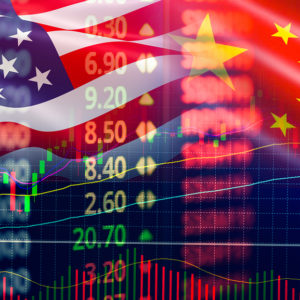President Biden places a significant premium on creating contrast with his predecessor, Donald Trump. However, regarding tariffs on certain imports, the plan is to keep things more or less the same.
Recent reports indicate that the Biden administration is evaluating $300 billion worth of Chinese goods that Trump saddled with tariffs using Section 301 of the Trade Act of 1974. Consumers will eat the costs, as they always do with protectionist policies. And it doesn’t seem to matter which party consumers vote for.
Inflation has been gradually cooling in the United States, offering consumers some much-needed relief after 2022 saw declines in household earnings due to higher prices. The easing of inflation has given Biden what he thinks is political wiggle room to further ding China on trade, bolstering his image with voters as tough on a foreign rival.
This is not how a free market economy is meant to work. An election year shouldn’t deliver higher consumer prices on select goods that don’t make the president’s Nice List. Electric vehicles with Chinese components and mineral-based products will remain artificially more expensive if tariffs continue and may even see an increase if Biden opts to turn the screws even tighter.
It’s a puzzling move for an administration that has touted fighting climate change as America’s most critical national security imperative, as tariffs will also inflate the price of clean energy technology. Consumers will flock to electric vehicles when the price is right and the reliability of the tech increases.
Tariffs will also contribute to disruptions in an already crisis-plagued global supply chain. Military operations against Iran-backed Houthi pirates in the Red Sea are blowing up the logistics of commercial shipping vessels worldwide. Roughly 30 percent of the world’s container shipments move through the Suez Canal, and the security risk has doubled shipping times and, in turn, will raise consumer prices.
Breakdowns in diplomatic relations and military primacy in strategic regions like the Red Sea or South China Sea do not come without consequence for Americans and their pocketbooks.
Research from the American Action Forum in 2023 found that the cost of tariffs was passed on to consumers to the tune of $48 billion since being implemented by Trump. That Biden would knowingly continue with this policy to score points looking tough with the Chinese is an insult to every American struggling to keep up with the costs of living.
Instead of resorting to steeper tariffs, the Biden administration is focused on lowering the cost of doing business in America for domestic industries. Blanket tariffs do little more than sweep larger economic problems under the rug for the next administration to find. The problem with dirt under the rug is that the next guy probably won’t sweep it up, and the losers are American consumers.


